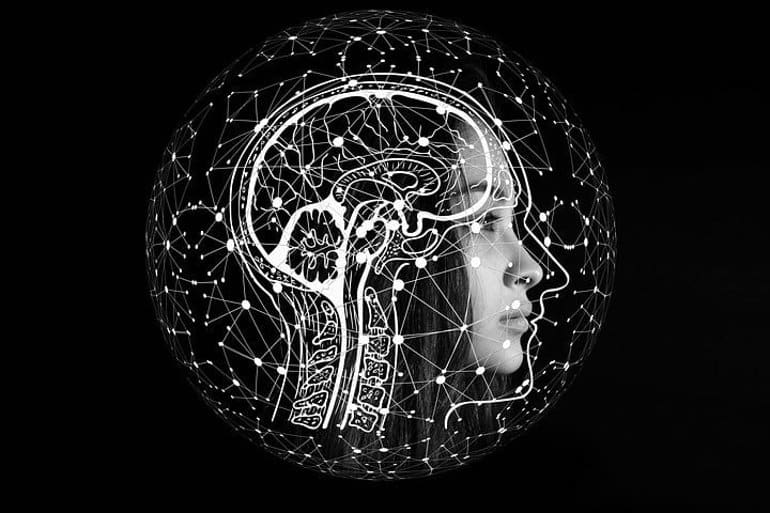Summary: Probiotic supplementation is suggested to prevent neuronal degeneration along the uncinate fasciculus and alter fronto-limbic rsFC, effects that are partly related to the improvement of depressive symptoms.
Source: University of Basel
Probiotics are suggested to improve depressive symptoms via the microbiota-gut-brain axis. Research published in the upcoming March edition of the Journal of Affective Disorders has shown a beneficial clinical effect of probiotic supplementation in patients with depression. Their underlying neural mechanisms remain unknown.
The microbiota-gut-brain axis consists of the gut microbiome plus specific neurobiological pathways. Studies involving the microbiome can be difficult due to the vast variability in microbiome composition.
Despite the high level of difficulty, a recent clinical trial by a team from the University of Basel demonstrates that after four weeks of treatment, patients receiving the probiotic had fewer depressive symptoms that those assigned the placebo, capturing that the microbiota plays a role in mental health.
In this study, patients with current depressive episodes were recruited from the University Psychiatric Clinic Basel, Switzerland and randomly assigned to either receive a specific eight strain probiotic formulation of 900 billion live bacteria (the De Simone Formulation), or a matching placebo daily for 31 days in addition to their antidepressant medication. Neither the study participants or the study staff knew whether the patients were taking probiotics or the placebo.
Researchers used the Hamilton Rating Scale for Depression (HAM-D), a clinical scale used to measure depression from the baseline to the end of treatment. Then again, when four weeks had passed at the conclusion of the treatment.
The findings showed that when patients took their study treatment as prescribed, those in the probiotic group had fewer depressive symptoms than those in the placebo group. Analysis of stool samples from the participants also showed that probiotic-treated patients also had more Lactobacillus species in their gut microbiome than the placebo-treated patients, which was, in turn, associated with fewer depressive symptoms.
Brain imaging of the participants who took probiotics revealed decreased neural activity in the putamen, a region involved in emotional processing and associated with depression. In subsequent analyses, the research team studied the brain function and blood perfusion of the supplemented patients using neuroimaging techniques such as functional MRI.

The researchers found that patients who received a placebo had the typical brain alterations associated with depression. In contrast, the people who took the probiotic had signs of preserved structural integrity and fewer signs of neurodegeneration.
The radiology findings were accompanied by improvement in depressive symptoms, prompting the authors of the study to presume that the beneficial clinical effects of probiotic supplementation in depression may be due to a protective effect against neuronal degeneration.
As part of their clinical trial, the investigators also examined if there were probiotic-induced changes in episodic memory and ultimately, also attributed a positive correlation.
About this depression research news
Author: Andre Schmidt
Source: University of Basel
Contact: Andre Schmidt – University of Basel
Image: The image is in the public domain
Original Research: Open access.
“Effects of a probiotic add-on treatment on fronto-limbic brain structure, function, and perfusion in depression: Secondary neuroimaging findings of a randomized controlled trial” by Schmidt et al. Journal of Affective Disorders
Abstract
Effects of a probiotic add-on treatment on fronto-limbic brain structure, function, and perfusion in depression: Secondary neuroimaging findings of a randomized controlled trial
Background
Probiotics are suggested to improve depressive symptoms via the microbiota-gut-brain axis. We have recently shown a beneficial clinical effect of probiotic supplementation in patients with depression. Their underlying neural mechanisms remain unknown.
Methods
A multimodal neuroimaging approach including diffusion tensor imaging, resting-state functional MRI, and arterial spin labeling was used to investigate the effects of a four-weeks probiotic supplementation on fronto-limbic brain structure, function, and perfusion and whether these effects were related to symptom changes.
Results
Thirty-two patients completed both imaging assessments (18 placebo and 14 probiotics group). Probiotics maintained mean diffusivity in the left uncinate fasciculus, stabilized it in the right uncinate fasciculus, and altered resting-state functional connectivity (rsFC) between limbic structures and the temporal pole to a cluster in the precuneus. Moreover, a cluster in the left superior parietal lobule showed altered rsFC to the subcallosal cortex, the left orbitofrontal cortex, and limbic structures after probiotics. In the probiotics group, structural and functional changes were partly related to decreases in depressive symptoms.
Limitations
This study has a rather small sample size. An additional follow-up MRI session would be interesting for seeing clearer changes in the relevant brain regions as clinical effects were strongest in the follow-up.
Conclusion
Probiotic supplementation is suggested to prevent neuronal degeneration along the uncinate fasciculus and alter fronto-limbic rsFC, effects that are partly related to the improvement of depressive symptoms. Elucidating the neural mechanisms underlying probiotics’ clinical effects on depression provide potential targets for the development of more precise probiotic treatments.






